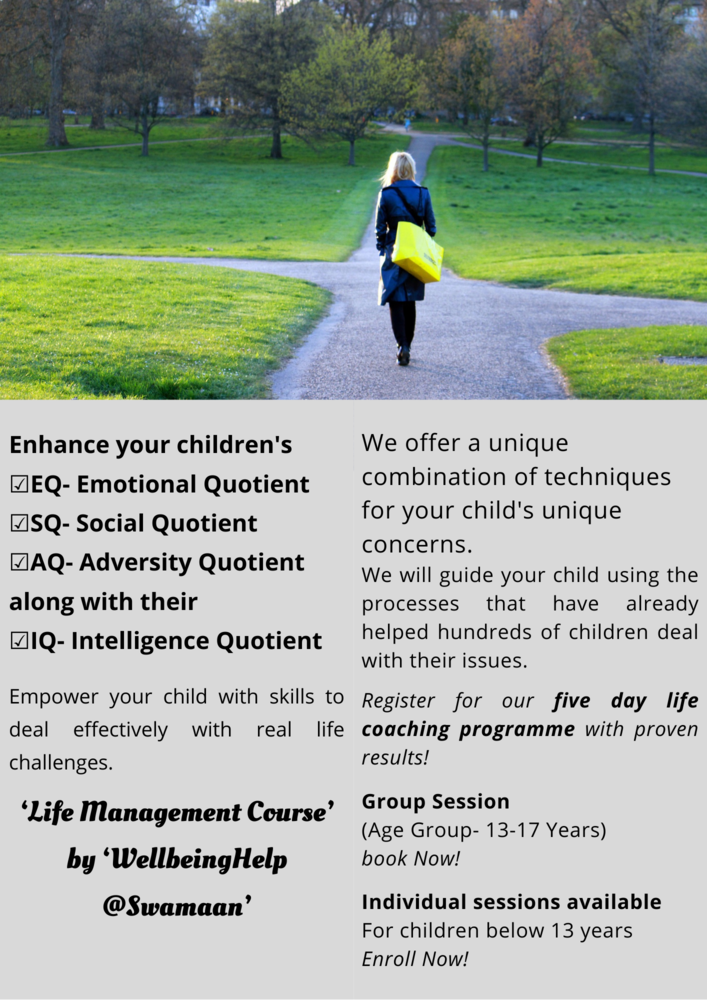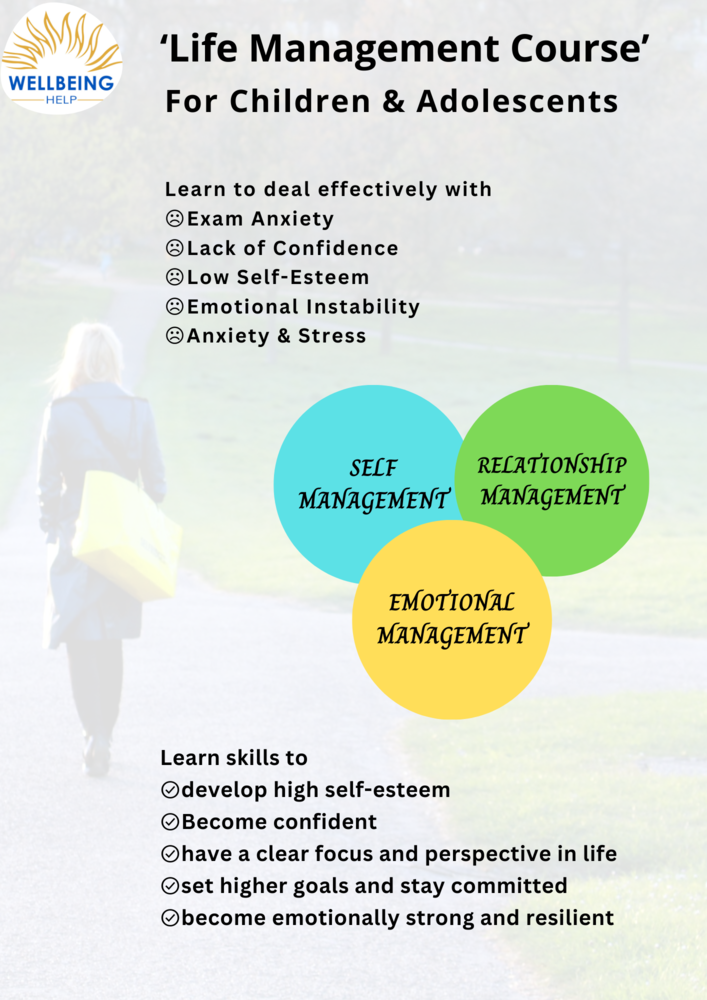Dear parents,
This is a letter from one parent to another.
Being a parent myself, I share your dreams, aspirations, struggles, insecurities, challenges, hopes and joys. Like you, I feel obligated to provide my kids with the best tools and education possible so they can grow up to be successful adults and contributing members of society. Like all other parents, I devote a significant amount of money, time, effort, and energy to raising my kids.
Even though I appreciate the work that parents put in, the outcome of our efforts got me to thinking.
- Do our efforts seem to be working?
- Are our kids learning the skills they need to be successful and happy?
- Do the students in our schools learn knowledge or skills?
- Do we promote the general wellbeing of our kids?
- In the mission admission, are we not lost?
- Are we to blame for forcing our children to compete in a rat race while disregarding their overall wellbeing?
- Are we merely emphasizing their IQ as a predictor of their future success?
If these questions bother you as much as they do me, it is important to consider what we can do as parents to ensure our children’s well-being. We must strive to support our children’s holistic development, paying attention not just to their academic progress but also their emotional growth.
Our educational system currently places a narrow emphasis on kids’ cognitive growth and defines learning as acquiring facts, theories, and concepts. This is a very restrictive definition of learning, in my opinion.
Raising Multi-faceted Intelligent Children
Now let us understand how we as parents can provide our children opportunities to enhance these most crucial intelligences and skills for life.
Our children’s growth and development are multi-dimensional. Along with ensuring their physical and cognitive development, we must find and put into practice strategies to ensure their social, emotional, and psychological well-being. We must insist on equal emphasis being placed on developing crucial life skills that enhance their SQ (Social Quotient), EQ (Emotional Quotient) and AQ (Adversity Quotient) along with the traditional IQ (Intelligence Quotient).

In my research into how to support our children in developing their four facets of intelligence, I discovered the micro-components known as life skills that contribute to children’s overall development.
IQ (Intelligence Quotient)
IQ is a measure of one’s ability to reason and solve problems. A person with a high IQ is capable of learning, comprehending, and applying knowledge. They are also capable of logical reasoning and abstract thought. Developing the following skills would enhance the IQ level of children.
Decision-making and problem solving: In this ever-changing world full of uncertainties, our children will need this skill to survive and thrive. Furthermore, having the ability to make decisions and solve problems is essential for success in both the personal and professional realms. Decision-making and problem solving are invaluable skills that our children will need to be able to navigate the challenges life brings. Knowing how to communicate effectively, decide on a course of action and solve problems are essential life skills that our children must develop in order to succeed. Good decision-making and problem solving skills enable our children to think logically, weigh different options and then choose the best course of action.
Creative thinking & Critical Thinking: Creative thinking and critical thinking are two important skills that can help our children become better problem solvers and make effective decisions. Creative thinking encourages our children to think outside the box, come up with new ideas and explore various options, while critical thinking helps them evaluate those options in a logical and reasoned way. Both of these skills are essential for success in life and can help our children make better decisions, think more clearly and ultimately reach their goals.
Anyone can be creative if they have the ability to come up with original solutions to problems that are not obvious ones. Here are a few suggestions for how parents can encourage their kids’ creative abilities.
- Instead of spending the weekends at the mall and the movies, we can take our children to places like museums, planetarium shows, hiking, art galleries, historical sites, etc.
- Storybooks, colouring pages, construction toys, play dough, crossword puzzles, and other activities can greatly enhance a child’s imagination and creativity.
- We can encourage our children to spend their time constructively, engaging in meaningful activities such as reading, learning a musical instrument, or volunteering in a charity project. These activities have the potential to boost our children’s self-esteem and confidence, while also providing them with meaningful learning experiences.
- Besides these, we may also strive to nurture the creativity and problem solving skills of our children by engaging them in activities such as gardening, cooking, woodwork, art and craft. All these activities can help our children to develop and enhance their knowledge in a fun and stimulating way.
EQ (Emotional Quotient)
The need for raising children’s emotional intelligence is further increased by the rise in mental disorders like depression, anxiety, and OCD, as well as rising stress levels, hectic schedules, and the pressure of the rat race. Here are some skills that enhance the EQ of an individual.
Self Awareness: When children are emotionally intelligent, they understand themselves and their emotions well. They are better able to deal with their emotions and express them in socially acceptable ways.
Assertiveness & Self-control: These skills are highly essential to be able to stand up for oneself and for others as well while maintaining control over their actions and words. Children with high emotional intelligence are more likely to be assertive and have better self-control, which gives them the ability to be more patient and handle difficult situations effectively.
One of the key components of emotional intelligence is stress management. It largely depends on whether a particular person allows their emotions to influence their judgement and important life decisions. For children to maintain mental health throughout their lives, they must begin to distinguish between their emotions and the realities of life. Here is how we can help them in the process:
- Being available to our children emotionally.
- Keeping an eye on our child’s emotions and talk to them if we notice any sudden changes in their behaviour.
- Never minimizing their issues; always attempting to imagine ourselves in their position to appreciate the gravity of the challenges they face.
- Paying attention to their concerns and struggles. Sometimes it is sufficient to simply listen to them rather than offering any sort of advice.
- Making sure they comprehend the connection between their thoughts, feelings and actions. Children would be able to comprehend the impact of their thoughts on their emotions and learn to manage their impulsive behaviour.
Higher EQ and SQ individuals typically achieve greater success in life than individuals with high IQs but low EQ and SQ. The majority of schools focus on raising IQ levels while downplaying EQ and SQ.
While our EQ represents our personality, our SQ represents our charisma.
We need to develop habits that will improve our EQ and SQ.
SQ (Social Quotient):
This is a measure of our children’s ability to establish and maintain a social network over time. Following skills help in developing SQ:
Empathy: Children with high SQ are also high on empathy, a skill highly required for developing satisfying interpersonal relations. This ability to empathize with others allows them to develop better relationships, understand the feelings of those around them and manage their own emotions more effectively.
Communication and Interpersonal skills: The significance of these skill cannot be overstated. Communication and interpersonal skills allow us to effectively convey our feelings, opinions and knowledge, as well as understand others. Additionally, interpersonal skills are essential for managing conflict and resolving disputes. These are essential to developing strong and lasting relationships while being able to use language as a medium to communicate.
As parents, we should encourage our kids to develop their EQ and SQ as well as their IQ.
AQ (Adversity Quotient)
The AQ (Adversity Quotient) is one of the elements of emotional quotient and is effectively used in dealing with challenging life circumstances. It is normal and understandable for parents to want to keep their children happy and safe from any harm. Making sure they are equipped to deal with the difficulties of everyday life is equally important.
Resilience: With this ability, children would learn to view challenging circumstances, failures, trauma, etc. as chances to grow and become stronger. They would be able to bounce back from failure, resist negative influences and remain optimistic in difficult situations. This intelligence is of utmost importance in the VUCA- (Volatile, Uncertain, Complex and Ambiguous) world we live in today.
Our children need to be equipped with the tools to effectively handle any kind of situation, be it a pandemic or an economic crisis. By equipping our children with high AQ, we give them the ability to use their own resources and strengths in order to find solutions to even the most complex problems. As parents, we can provide our children with the opportunities to develop their high AQ by allowing them to make mistakes, allowing them to take risks and try out new things. Here are a few strategies parents can use to help their children’s Adversity Quotient (AQ) rise.
- Children should not always be protected from the truth by their parents; instead, they should be made aware of any issues or difficult circumstances the family is going through.
- Instead of using fictional stories to teach their children values and morals, parents should use examples from real life.
- It is important to teach kids that it’s okay to lose sometimes and that it’s an opportunity to improvise. Parents should advise their kids not to strive for perfection.
- Last but not least, kids should be taught the value of endurance, perseverance, and doing their best with every choice they make.
Instead of enrolling our young, inquisitive students in a variety of coaching classes after school to stay ahead in the competitive race for grades and admissions, I would strongly advise allowing them to experience life and learn from it.
Skill Development with Wellbeing Help @ swamaan
By mastering both fundamental and sophisticated parenting techniques, we can better prepare ourselves to guide our kids. The training of parenting skills will give us the tools to help our children become independent, motivated and confident individuals. You can explore wellbeinghelp@swamaan for our parenting workshops, courses and bootcamps.

We can also seek resources around us that would be able to provide them with guided learning experiences, coaching, counseling, training etc. We can provide our children with the necessary guidance and mentorship to hone their skillsets so that they can work on self-development and understand their own capabilities. Wellbeinghelp@swamaan offers these skill building sessions for children and adolescents at a very affordable price.
I look forward to connecting with like minded parents and help our children develop the four types of intelligences required to become happy, healthy, responsible and compassionate individuals.


